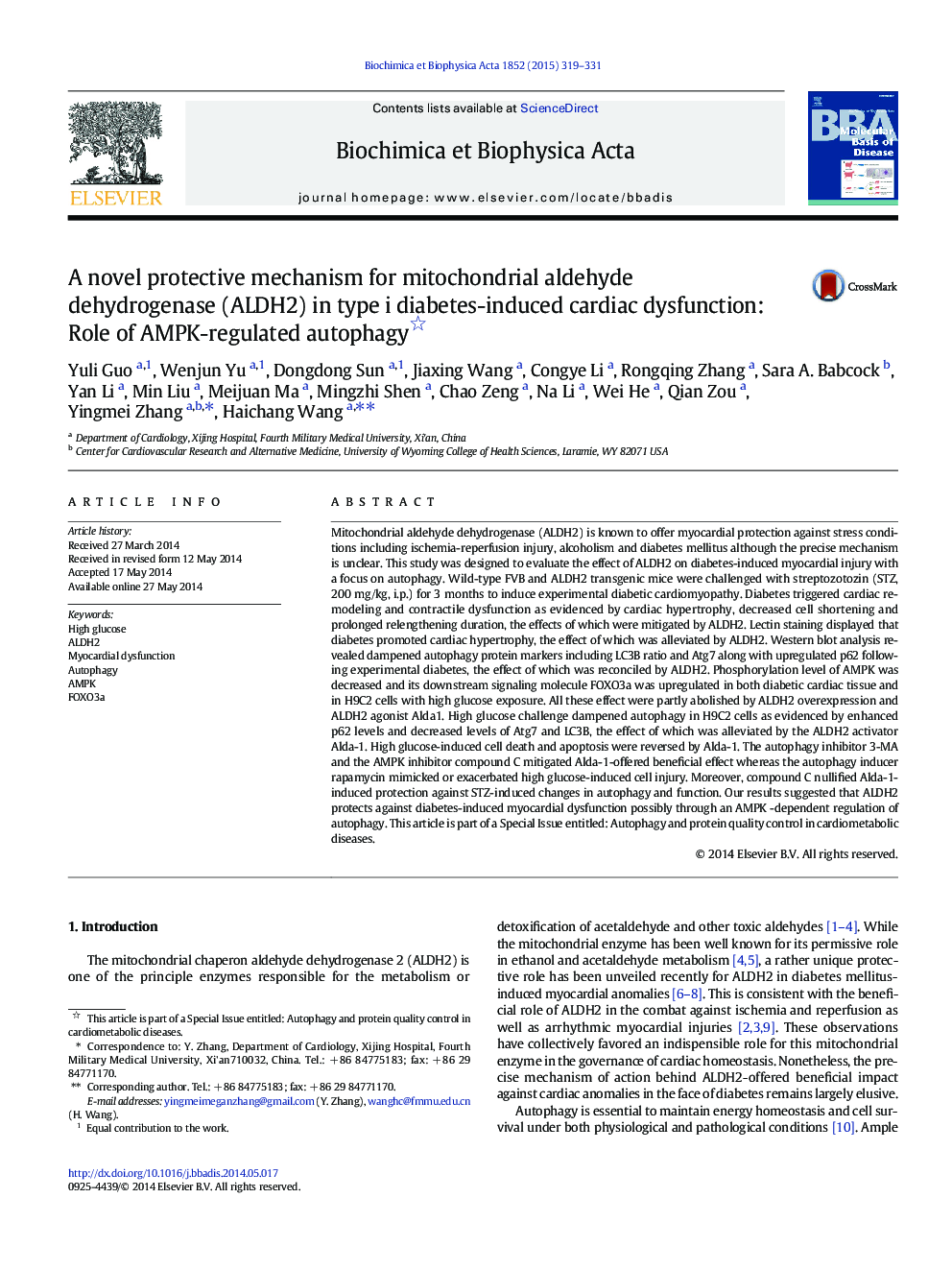| کد مقاله | کد نشریه | سال انتشار | مقاله انگلیسی | نسخه تمام متن |
|---|---|---|---|---|
| 1904621 | 1534650 | 2015 | 13 صفحه PDF | دانلود رایگان |

• ALDH2 protects against diabetes-induced cardiac dysfunction and mitochondrial damage.
• ALDH2 protects against diabetes-induced downregulation of autophagy.
• ALDH2 regulates autophagy in diabetic myocardium through AMPK/FoxO3a pathway.
Mitochondrial aldehyde dehydrogenase (ALDH2) is known to offer myocardial protection against stress conditions including ischemia-reperfusion injury, alcoholism and diabetes mellitus although the precise mechanism is unclear. This study was designed to evaluate the effect of ALDH2 on diabetes-induced myocardial injury with a focus on autophagy. Wild-type FVB and ALDH2 transgenic mice were challenged with streptozotozin (STZ, 200 mg/kg, i.p.) for 3 months to induce experimental diabetic cardiomyopathy. Diabetes triggered cardiac remodeling and contractile dysfunction as evidenced by cardiac hypertrophy, decreased cell shortening and prolonged relengthening duration, the effects of which were mitigated by ALDH2. Lectin staining displayed that diabetes promoted cardiac hypertrophy, the effect of which was alleviated by ALDH2. Western blot analysis revealed dampened autophagy protein markers including LC3B ratio and Atg7 along with upregulated p62 following experimental diabetes, the effect of which was reconciled by ALDH2. Phosphorylation level of AMPK was decreased and its downstream signaling molecule FOXO3a was upregulated in both diabetic cardiac tissue and in H9C2 cells with high glucose exposure. All these effect were partly abolished by ALDH2 overexpression and ALDH2 agonist Alda1. High glucose challenge dampened autophagy in H9C2 cells as evidenced by enhanced p62 levels and decreased levels of Atg7 and LC3B, the effect of which was alleviated by the ALDH2 activator Alda-1. High glucose-induced cell death and apoptosis were reversed by Alda-1. The autophagy inhibitor 3-MA and the AMPK inhibitor compound C mitigated Alda-1-offered beneficial effect whereas the autophagy inducer rapamycin mimicked or exacerbated high glucose-induced cell injury. Moreover, compound C nullified Alda-1-induced protection against STZ-induced changes in autophagy and function. Our results suggested that ALDH2 protects against diabetes-induced myocardial dysfunction possibly through an AMPK -dependent regulation of autophagy. This article is part of a Special Issue entitled: Autophagy and protein quality control in cardiometabolic diseases.
Journal: Biochimica et Biophysica Acta (BBA) - Molecular Basis of Disease - Volume 1852, Issue 2, February 2015, Pages 319–331